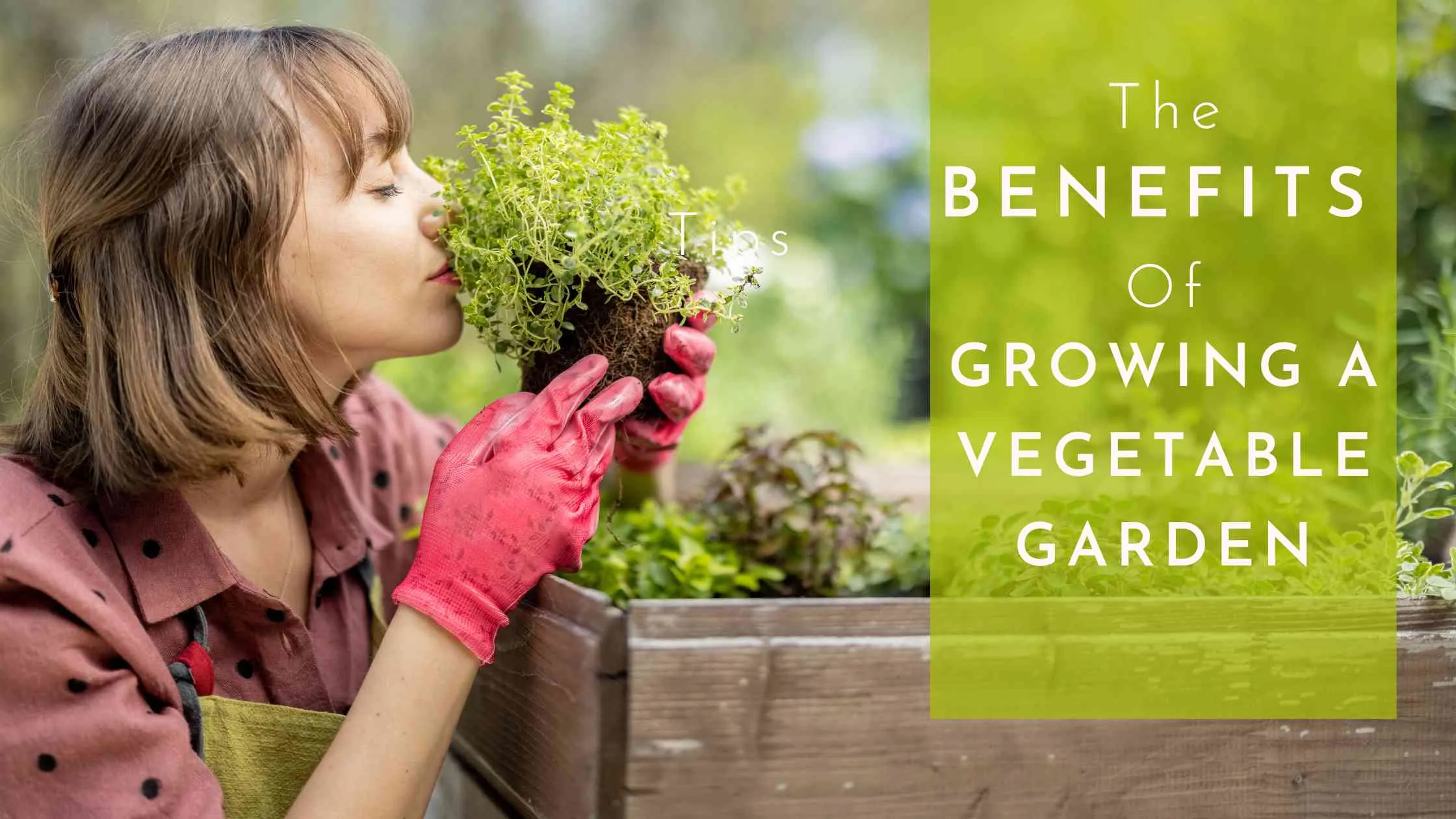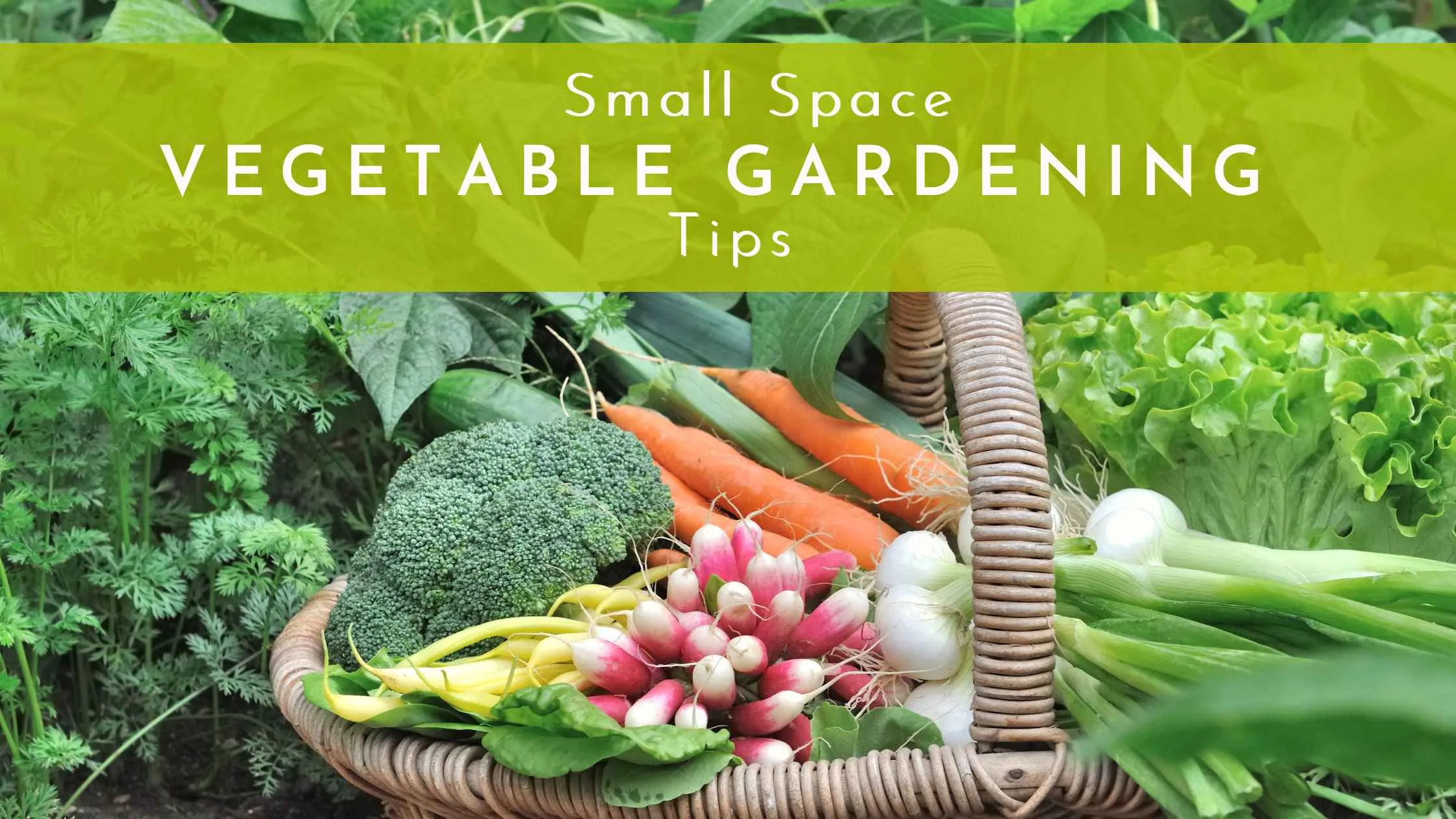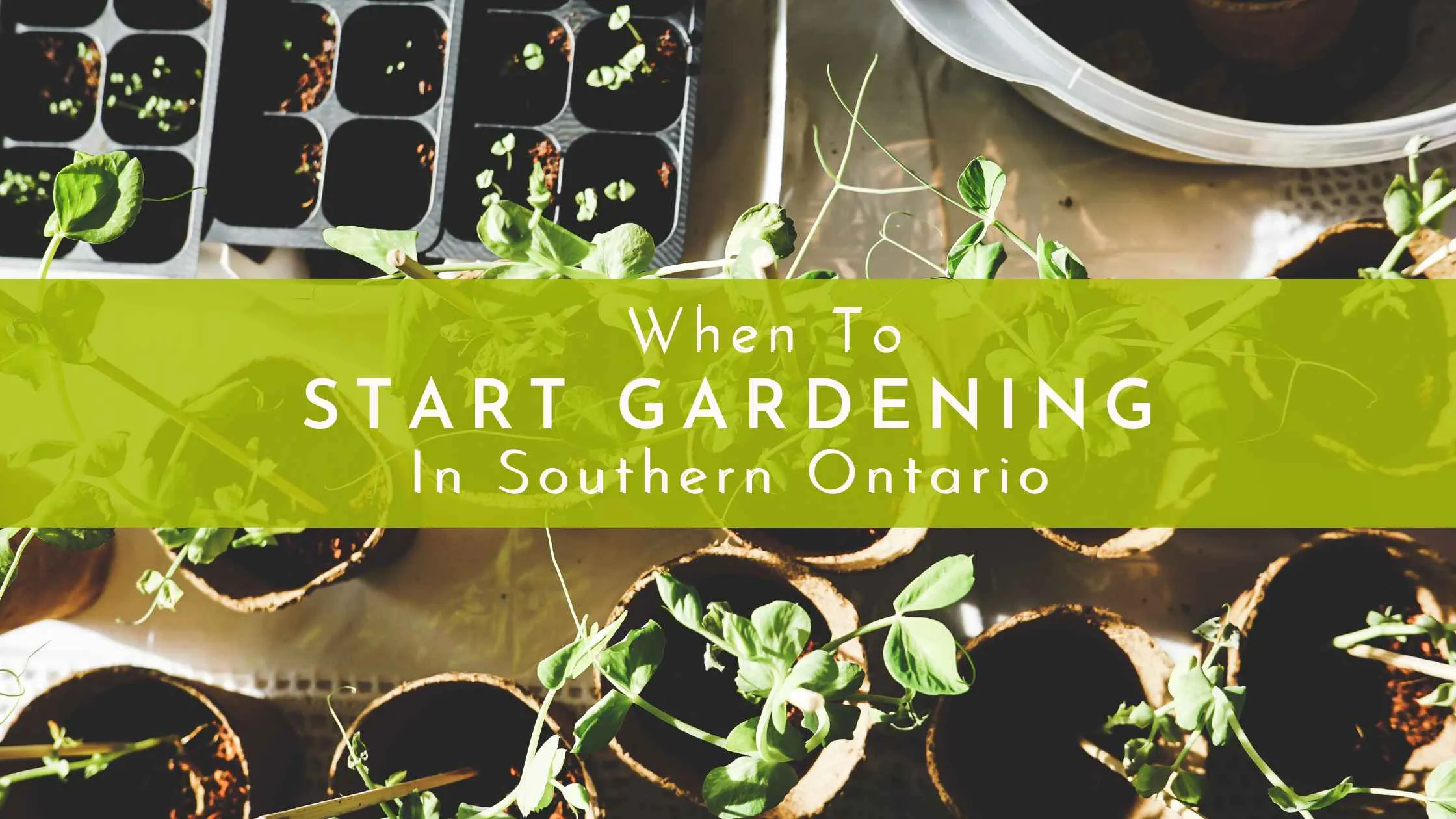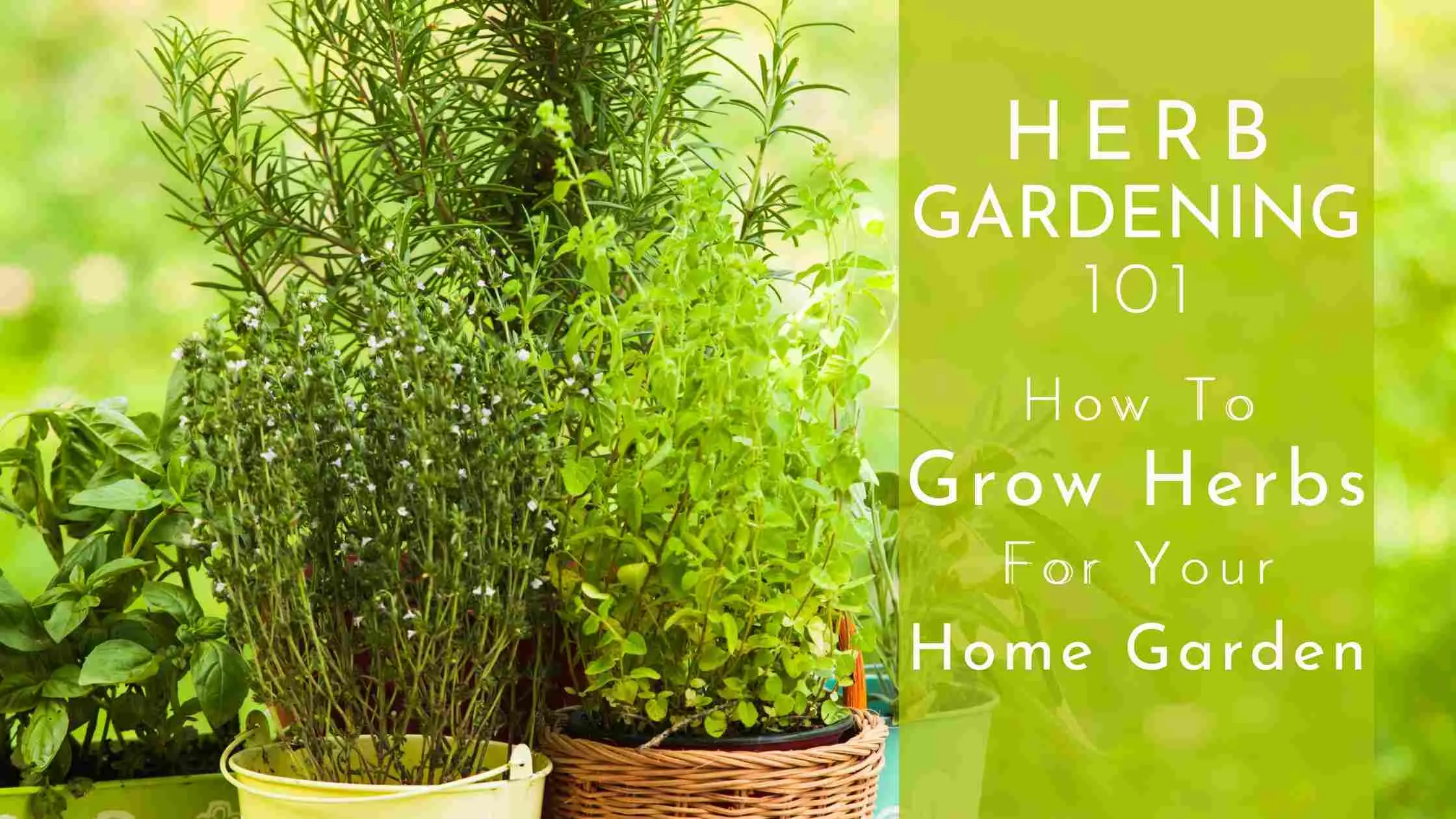The Benefits of Houseplants
You might know that outdoor activities including forest bathing and nature walks help to improve stress and anxiety level. But do you know the same goes for indoor plants?
Indoor plants are a natural source of beauty and comfort in your home and office. Keeping indoor plants is not new, since it is a cultural practice in many regions around the world. In China, growing indoor plants has been practiced for centuries and symbolizes wealth and status.
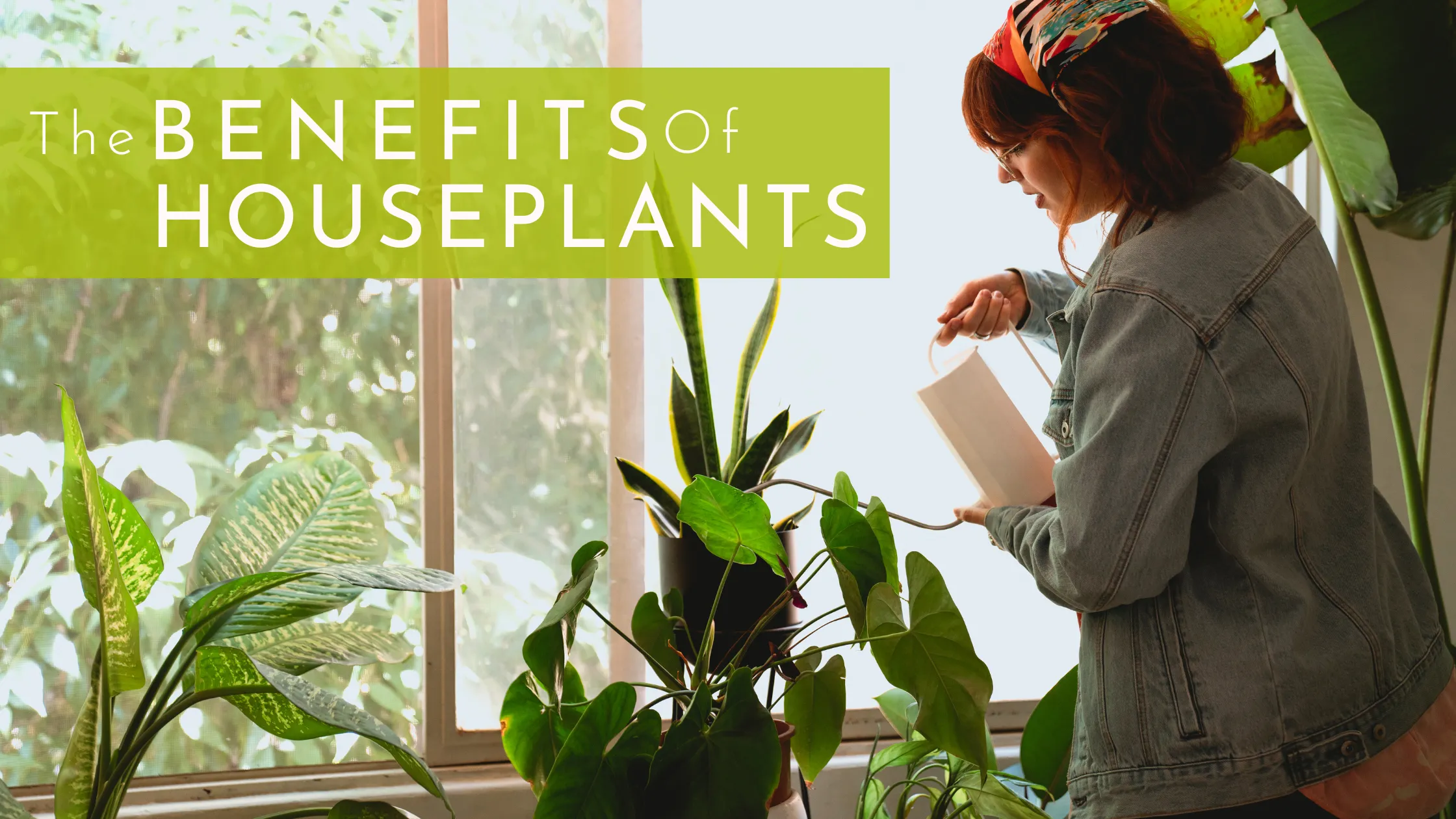
Houseplants not only make the interior of your home feel more luxurious but also offer various health benefits. According to the studies, houseplants hold psychological and physical health benefits.
Not only does their presence provide positive advantages but you can experience calming effects just by taking care of them. The presence of foliage of indoor plants keeps you happy and more relaxed. Bringing nature closer to your surroundings makes you feel even calmer.
What are the Benefits of Gardening at Home
Gardening is a healthy practice that helps to feel closer to nature. Some of the benefits of indoor gardening and outdoor gardening are:
- Physical Activity
Gardening is a physical activity that keeps your body active. It loosens your muscles and makes you feel relaxed. According to research, gardening keeps you healthy both physically and mentally. It also keeps your blood pressure levels down.Moreover, it improves your focus and helps distract you from the continued use of those harmful modern-day devices.
- Great Activity to Do With Children
Let your kids help with the gardening. Let them dig down in the soil and feel it between their fingers. Your children see the benefits of their hard work and will start appreciating and enjoying nature. The wonder and amazement of seeing how plants grow out of the soil will make them more willing to eat fruits and vegetables that they themselves have grown. - Readily Available Organic Produce
Having your own garden will help you enjoy more and a wider variety of organic foods. You will be healthier as you consume fresh food. - Requires Only A Small Space
Gardening does not require a huge yard. A small area for gardening can have great results.
Now that we know the benefits of gardening in general, let’s dive into the health benefits of houseplants.
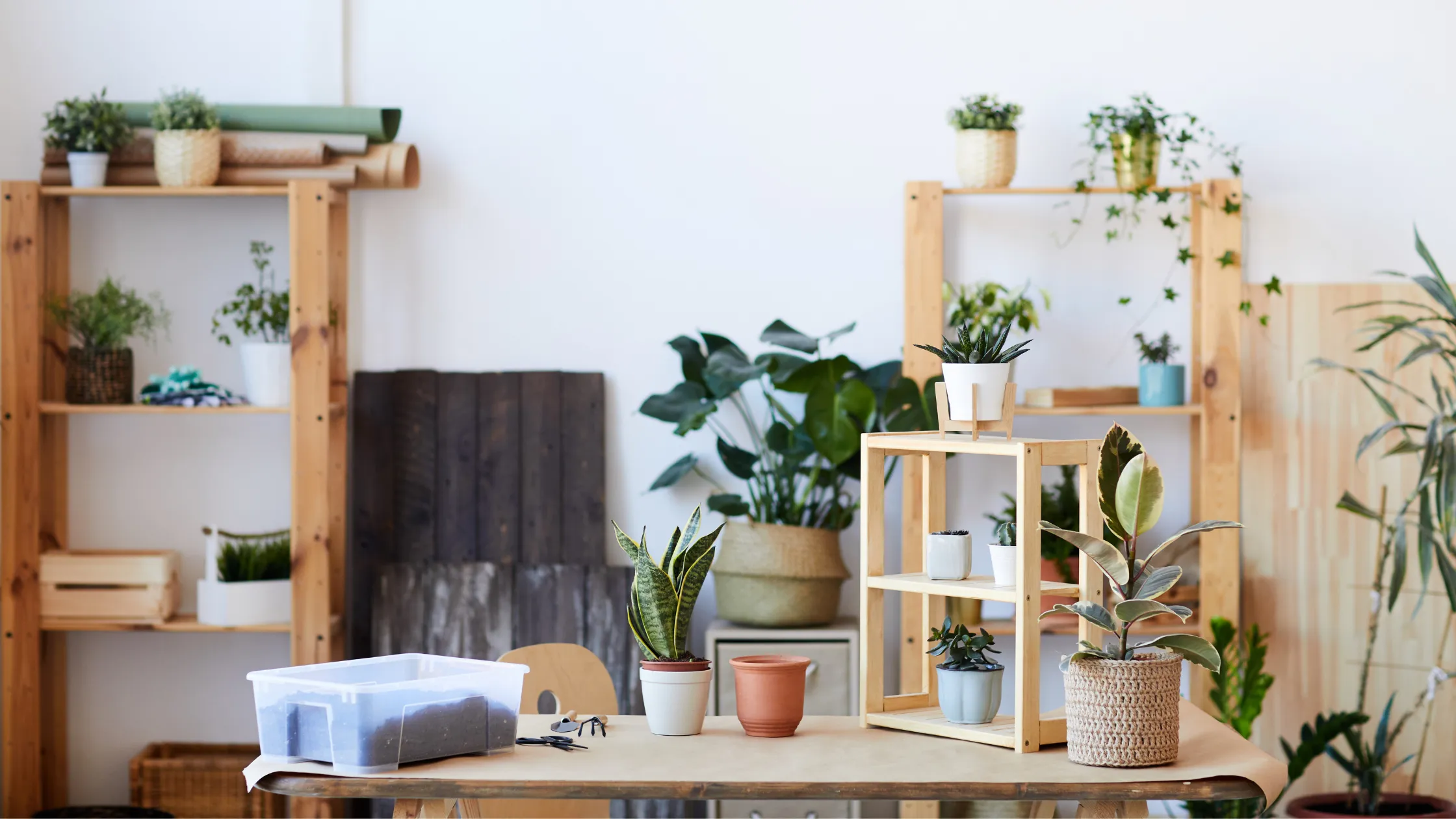
Common Benefits of Houseplants
The three most common health benefits of plants in your house are:
- Improving air quality
- Humidifying the air
- Improving well being
Other benefits of house plants include:
- Helps to improve your mood
- Reduce fatigue
- Lowers stress and anxiety
- Improve work performance and focus
- Boost healing and tolerate pain
- Minimize the occurrence of headachesEase dry skin
- Reduce respiratory ailments
- Act as an efficient air cleanser
- Better Sleep
Let’s get into these a bit more. So how do houseplants benefit us?
The Health Benefits of Houseplants
In addition to bringing greenery to your home, you can benefit from indoor plants in the following ways:
Houseplants Help to Relieve Stress
Research has confirmed that people have reported less stress when working around plants. So indoor plants help to relieve stress making you calmer. Indoor plants in the office can also increase work efficiency.
Your blood pressure tends to be lower when you are surrounded by plants. This further contributes to lowering the stress level.
Houseplants Help Improve Sleep
Certain kinds of houseplants like orchids, bromeliads, and succulents release oxygen into the atmosphere at night. With higher oxygen levels, you will enjoy better, longer, and deeper sleep. Place these types of plants within six to eight feet of where you sleep to enjoy these benefits.
Houseplants Humidify the Air
The presence of fauna in your room humidifies the atmosphere.
You might know that plants absorb their nutrients from the water in the soil. Some of the water is lost when they open their pores in their leaves to absorb CO2. In this way, the air becomes humid.
So indoor plants release water vapors naturally that increase humidity. The increase in humidity is very good for respiratory and skin health. So, people with respiratory problems, headaches, and allergies can find keeping indoor plants effective at reducing these problems.
Houseplants Prevent Dryness
So we know that houseplants increase indoor humidity naturally. The released water vapors keep the surrounding air moist. In this way, it prevents dry skin and sinus problems, especially in the winter.
Houseplants Keep You Energetic
An increased amount of CO2 leads to fatigue and drowsiness. The process of photosynthesis removes carbon dioxide from the air which helps you feel relaxed.
Houseplants Help Prevent the Winter Blues
With more oxygen and a comfortable, more humid environment, indoor plants boost your mood even in the cold winter.Houseplants Help Improve the Quality of the Air
NASA has conducted several research projects to see the effect of a houseplant on cleaning the air for use in their space stations. They found that houseplants clean the air efficiently and even recommend keeping 13- 18 plants in an 1800-square-foot home. According to one horticultural professor at Washington State University covering 2 % of your room with houseplants can also be effective.
Here are some of the other ways through which houseplant improves the air quality.
Keeps the air pollutants away:
The use of common household items can produce gases that increase air pollution. Houseplants can help to purify the air by absorbing these toxic substances and pollutants from the air.Purifies the air from harmful gases:
Plants improve the air quality of your home while doing their everyday task. You might know how the process of photosynthesis through which plants absorb CO2 from the air to produce sugars.In the process of absorbing the CO2 gas from the atmosphere, the plant also absorbs other environmental gases that can be harmful to human health thus purifying the air.
Lowers respiratory and other ailments:
Indoor plants also lower asthma and other respiratory problems by limiting the gases like nitrogen oxides and sulfur from the air.
One study found that houseplants can lower indoor dust by 20%. Thus reducing dust allergies.Houseplants Can Help With Healing
You may be surprised to learn that indoor plants also have benefits for patients. Yes, the research confirmed that the indoor plants fasten the patient's recovery after the surgery. Only the view of rich green vegetation can even fasten the recovery process.Some studies show that patients report reduced stress, fatigue, blood pressure, and pain levels when plants are in the room.
Houseplants Help Increase the Oxygen in the Air
One finding says that people can enhance the impact of houseplants by keeping them in their breathing range. The increased oxygenation will positively affect your mood, energy, and focus.
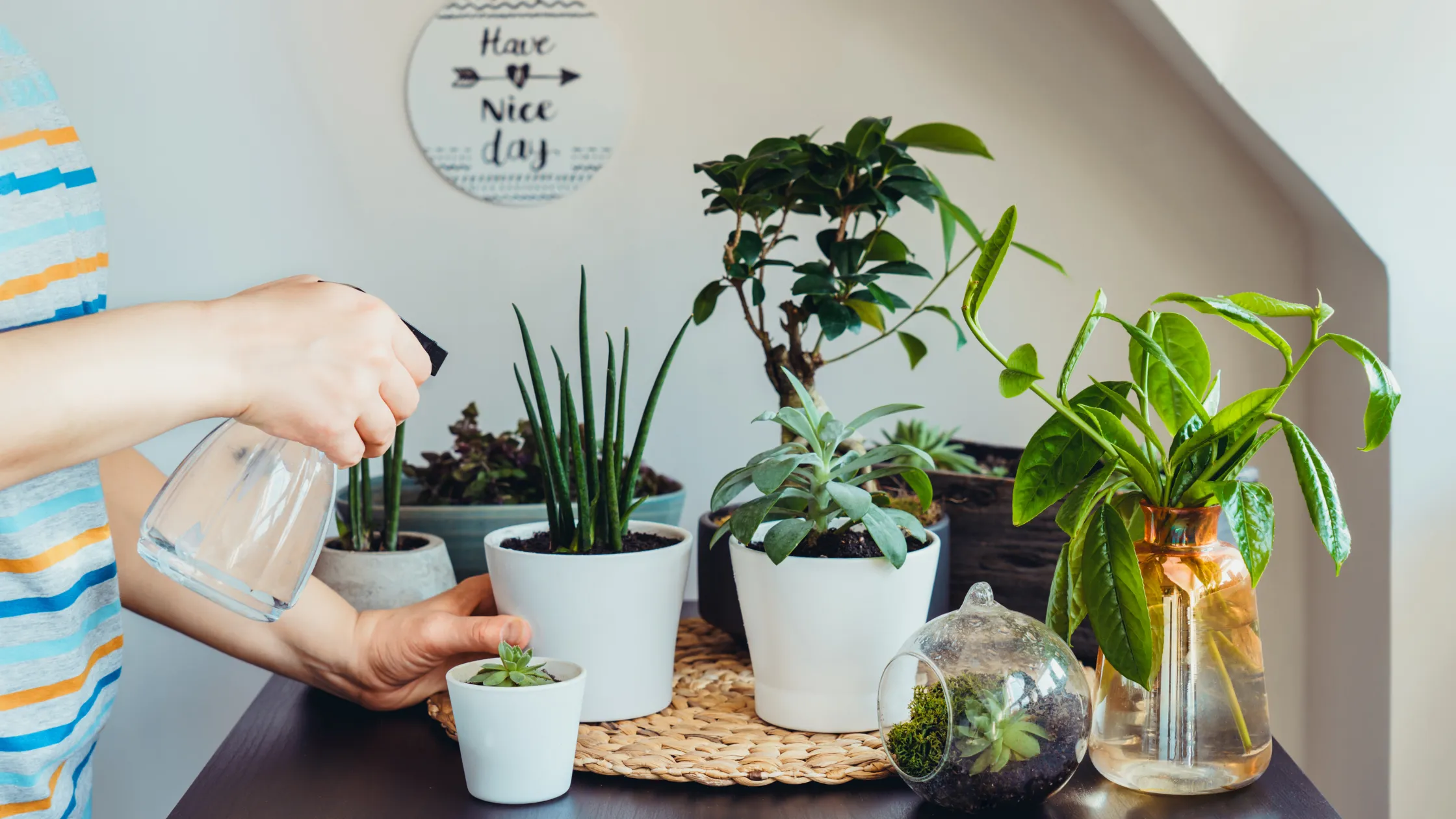
Specific Uses Around the House
Indoor plants can be quite diverse. The benefits listed above apply to almost every kind of houseplant. But there are some benefits that are specific to only a particular kind of houseplant:
- The gel of the Aloe Vera plant has been used traditionally for years to treat burns. Many people keep it in their kitchen in case of mild cooking burns.
- Lavender and Jasmine are used for their soothing and pleasant fragrance. These indoor plants are added to women's perfumes because of their lovely scent. Keeping lavender and jasmine in your bedroom promotes better and more comfortable sleep.
- Some indoor plants are used only for cooking and eating. Others are used for both cooking and as a source of fragrance. Herbs like basil, mint, parsley, rosemary, cilantro, and dill are perennial. You can keep them near your kitchen window, water them daily, and utilize the fresh herbs for cooking throughout the year.
There are also some non-health-related benefits to houseplants:
Other Non-Health-Related Benefits of Houseplants
Aesthetics and Ornamentals
Indoor plants are a natural refreshing decoration source. You can bring a lush beauty to your living room, bedroom, kitchen and office.
Ease of Access and Availability
A bonus of houseplants is their reasonable prices. You can easily get a collection of houseplants at relatively low prices.
Moreover, many require minimal care. Watering once a week can be enough to keep the plants healthy.
You can set a reminder if you have an issue with forgetting things. You can also get a xerophytic plant-like cactus that does not require frequent watering. They can naturally survive even if not getting water for months.
Final Thoughts
Houseplants add to the décor of any home. Many are very low maintenance. However, there are also many physical, mental, and psychological benefits to having houseplants in your home.
With all of these benefits, who wouldn’t want to have houseplants. Let us know in the comments below which houseplants you have, or plan to have.


